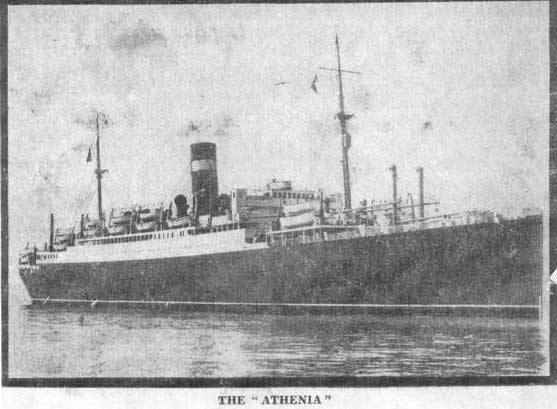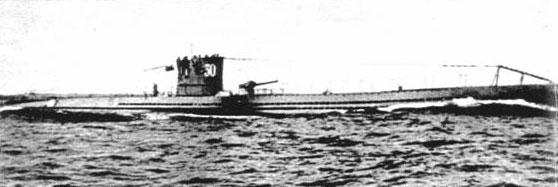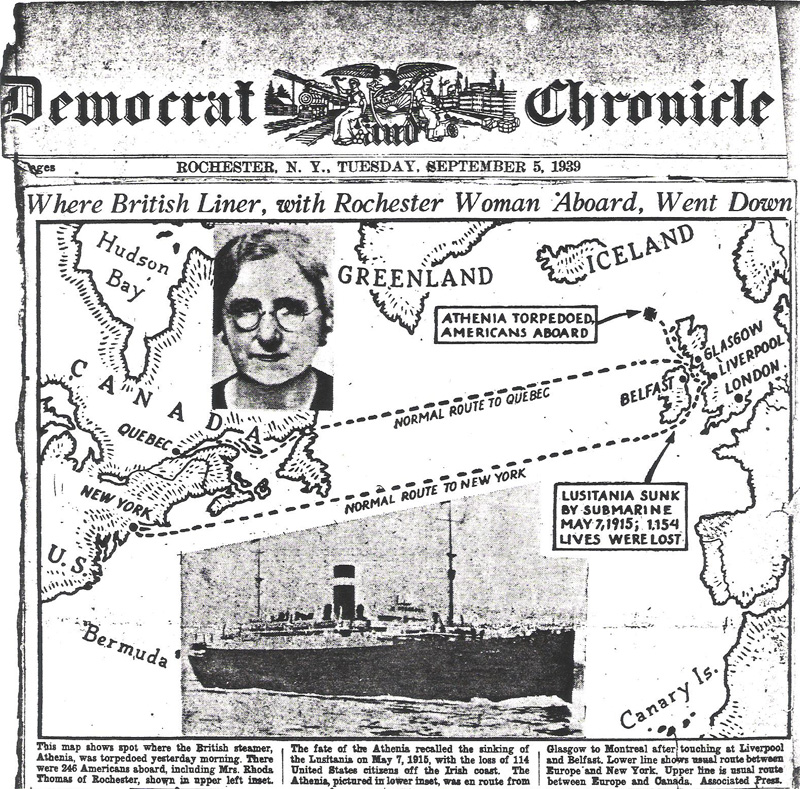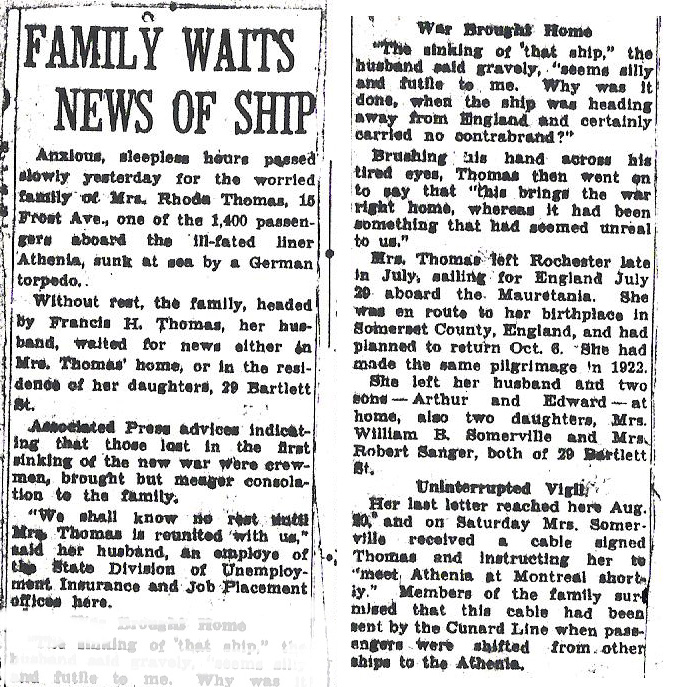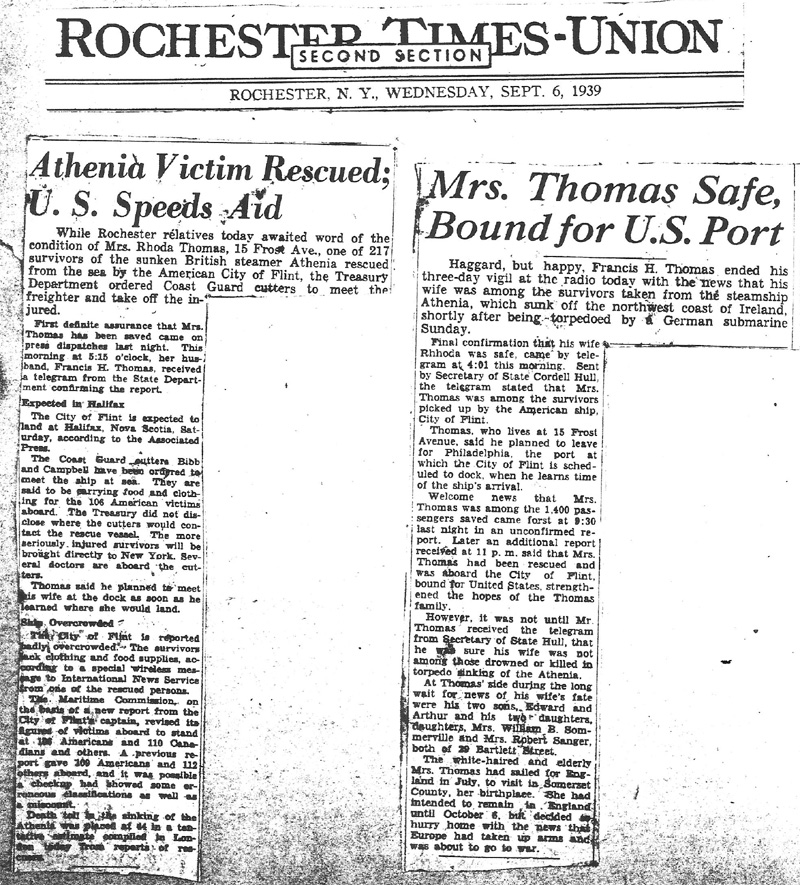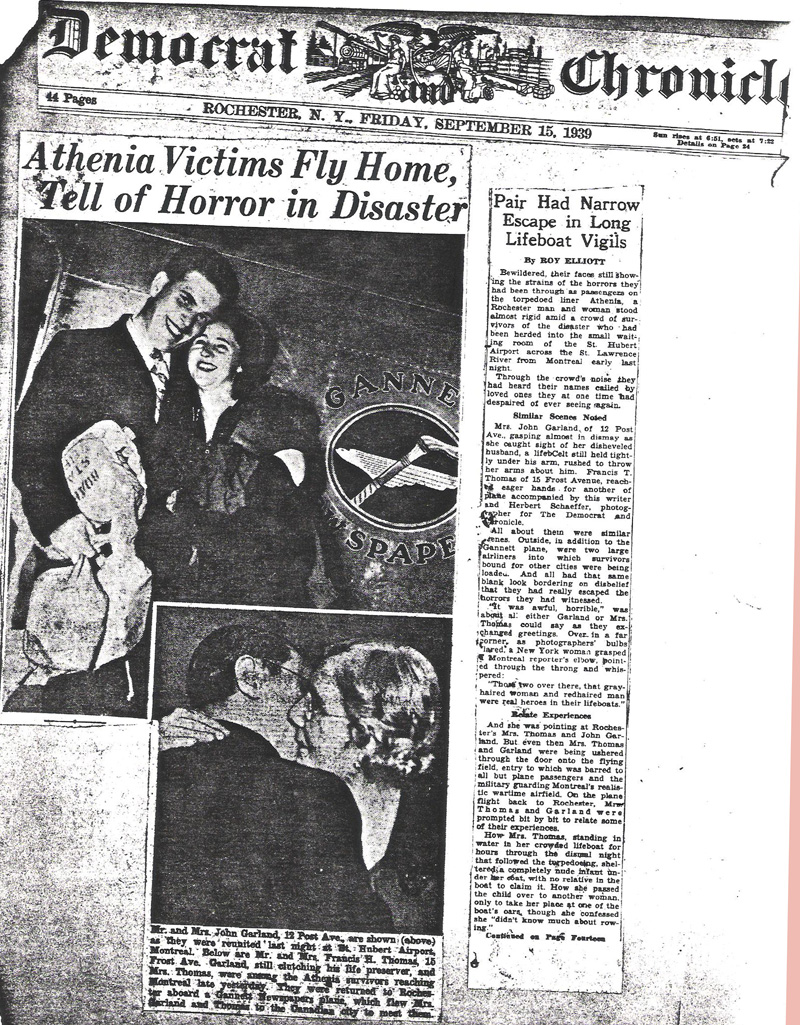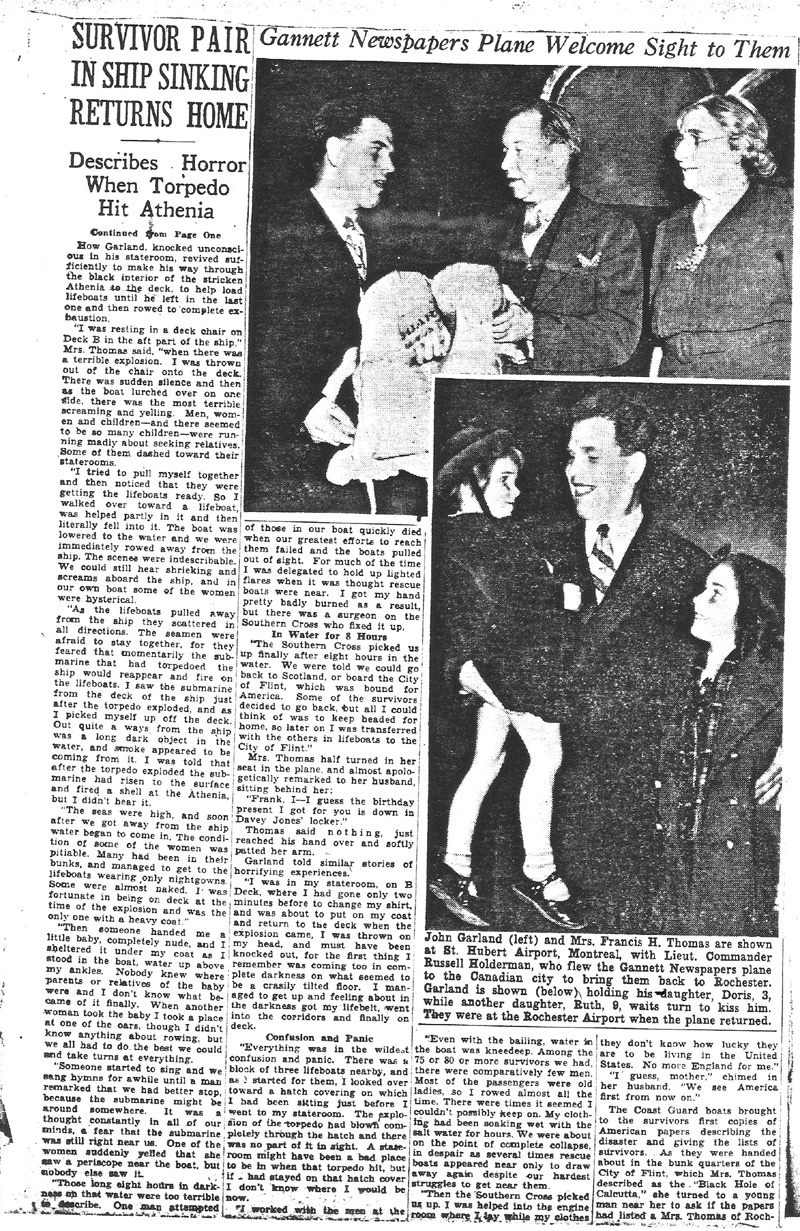|
Rhonda Thomas' personal account - "Experiences of an Athenia Survivor"
-->Read "Rhonda Thomas' personal account, "Experiences of an Athenia Survivor"<-- After Athenia was sunk on day one of WW2 a great deal was written about the loss and we decided to devote the Athenia Pages to the subject on our AHOY site. See "Index to articles about Passenger Liner Athenia"
The latest addition is an account by Rhonda Thomas of her experiences in that ship on the day of the torpedoing. I have been surprised by the amount of interest in the sinking of this ship, and new material seems to be still forthcoming on a regular basis. Nothing beats the written personal account of a survivor, and this piece adds to our knowledge and understanding of a momentous event on the very first day of the start of WW2.
I acknowledge with thanks Thomas Sanger's readiness to share this account with us, so hopefully bringing it to a wider audience via our AHOY website. See "Rhoda Thomas survived sinking of the Athenia and left our family with a detailed account" -->Read "Rhonda Thomas' personal account, "Experiences of an Athenia Survivor"<--
From Thomas January 28, 2012 Athenia Survivor's Story (Read "Rhonda Thomas' personal account, "Experiences of an Athenia Survivor") Hello Mac, I have spent the last several days exploring the fascinating “Athenian Pages” of your website. You and Terry deserve kudos for all the work you have done. My interest is related to my grandmother, Rhoda Thomas, who was a survivor of the Athenian torpedoing and left our family with a detailed account of her experiences that evening and beyond. She was born in England, but immigrated to the United States with her husband and small family in 1914. She had returned to England in August, 1939, to visit with friends and relatives but was advised by the American consulate toward the end of the month to return home as soon as possible. Grandma boarded the Athenia in Liverpool. When the ship was attacked Sept. 3, she was on deck and, fortunately for her, wearing a heavy coat against the evening chill. The lifeboat she entered was crowded and she had to stand for a good portion of the night. During this time, she was handed a baby to hold under her coat to keep warm. How I would love to know that child’s identity and what became of him or her. Also in the lifeboat with by grandmother were Margaret Hayworth, the child who eventually died of wounds she received in the submarine attack, and her mother. They were rescued by the Southern Cross and later transferred to the City of Flint and landed at Halifax. While on the City of Flint, she met another survivor, a young man named John Garland, and they struck up and acquaintance because they were both from Rochester, New York. I might note that Mr. Garland’s name is not included among the survivors listed on the City of Flint. If you are interested, I have a lengthy narrative written by my grandmother as well as newspaper articles regarding the sinking and would be happy to share them. Thank you again for all the good work you and Terry have done to keep the memory of the Athenia alive. Tom Sanger
Thank you for your mail and nice words about AHOY, we love accolades, but accept brickbats equally. I do the research and writing, then Terry cleans it up and puts it on AHOY. Without his expertise our site would not exist. I owe him a great debt. I would love to have anything you care to share about the Athenia tragedy. It has developed more interest and comment probably above anything else about which I have written. Best regards, Democrat and Chronical Where British Liner, with Rochester Woman Aboard, Went Down This map shows spot where the British steamer, Athenia, was torpedoed yesterday morning. There were 246 Americans aboard, including Mrs. Rhoda Thomas of Rochester, shown in upper left inset. The fate of the Athenia recalled the sinking of the Lusitania on May 7, 1915, with the loss of 13 United States citizens off the Irish coast. The Athenia, pictured in lower inset, was en route from Glasgow to Montreal after touching at Liverpool and Belfast. Lower line shows usual route between Europe and New York. Upper line is usual rouse between Europe and Canada. Associated Press
FAMILY WAITS NEWS OF SHIP Anxious, sleepless hours passed slowly yesterday for the worried family of Mrs. Rhoda Thomas, 15 Frost Ave., one of the 1,400 passengers aboard the ill-fated liner Athenia, sunk at sea by a German Torpedo. Without rest the family, headed by Francis H. Thomas, her husband, waited for news either in Mrs. Thomas' home, or in the residence of her daughters 29 Bartlett St. Associated Press advices indicating that those lost in the first sinking of the new war were crewmen, brought but meager consolation to the family. "We shall know no rest until Mrs. Thomas is reunited with us,"said her husband, an employee of the State Division of Unemployment Insurance and Job Placement offices here. War Brought Home "The sinking of that ship," the husband said gravely, "seems silly and futile to me. Why was it done, when the ship was heading sway from England and certainly carried no contraband?" Brushing he had across his tired eyes, Thomas then went on to say that "this brings the war right home, whereas it had been something that had seemed unreal to us." Mrs. Thomas left Rochester late in July, sailing for England July 20 aboard the Mauretania. She was en route to her birthplace in Somerset County, England, and had planned to return Oct. 6. She had made the same pilgrimage in 1922. Uninterrupted Vigil. Her last letter reacher her August 20, and on Saturday Mr. Somerville received a cable signed Thomas and instructing her to "meet Athenia at Montreal shortly." Members of the family surmised that this cable had been sent by the Cunard Line when passengers were shifted from other ships to the Athenia.
-->Read "Rhonda Thomas' personal account, "Experiences of an Athenia Survivor"<-- |

